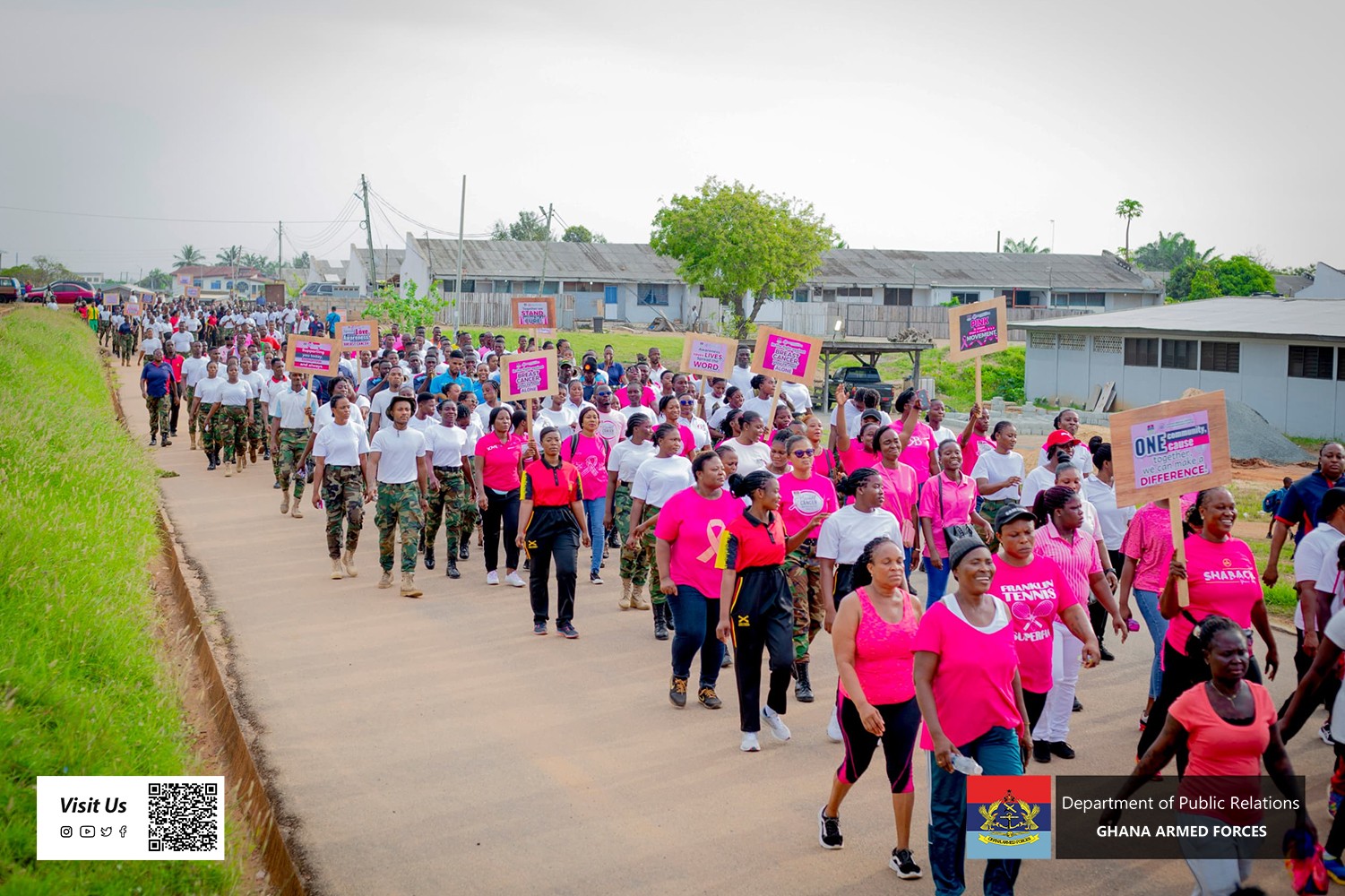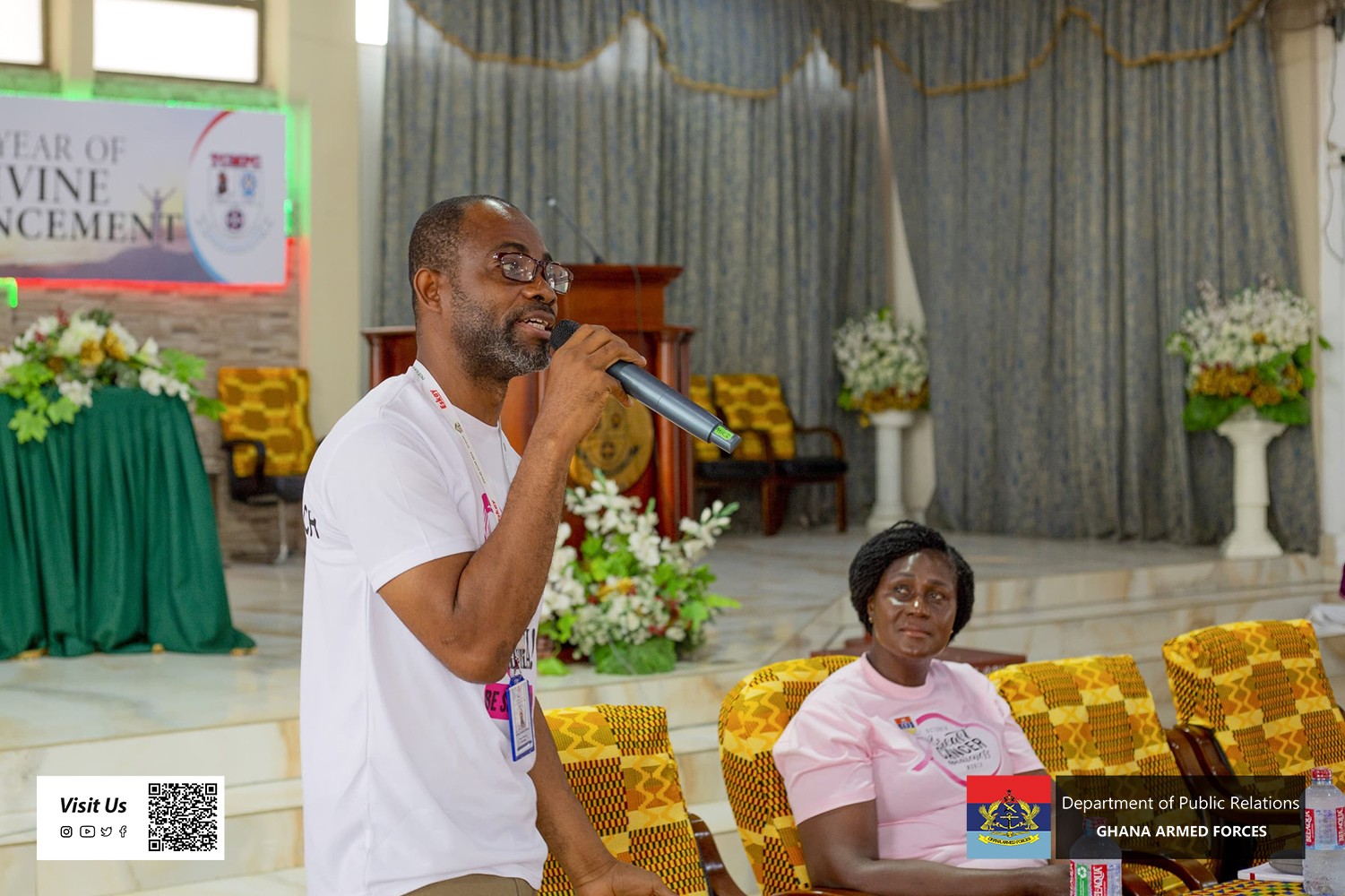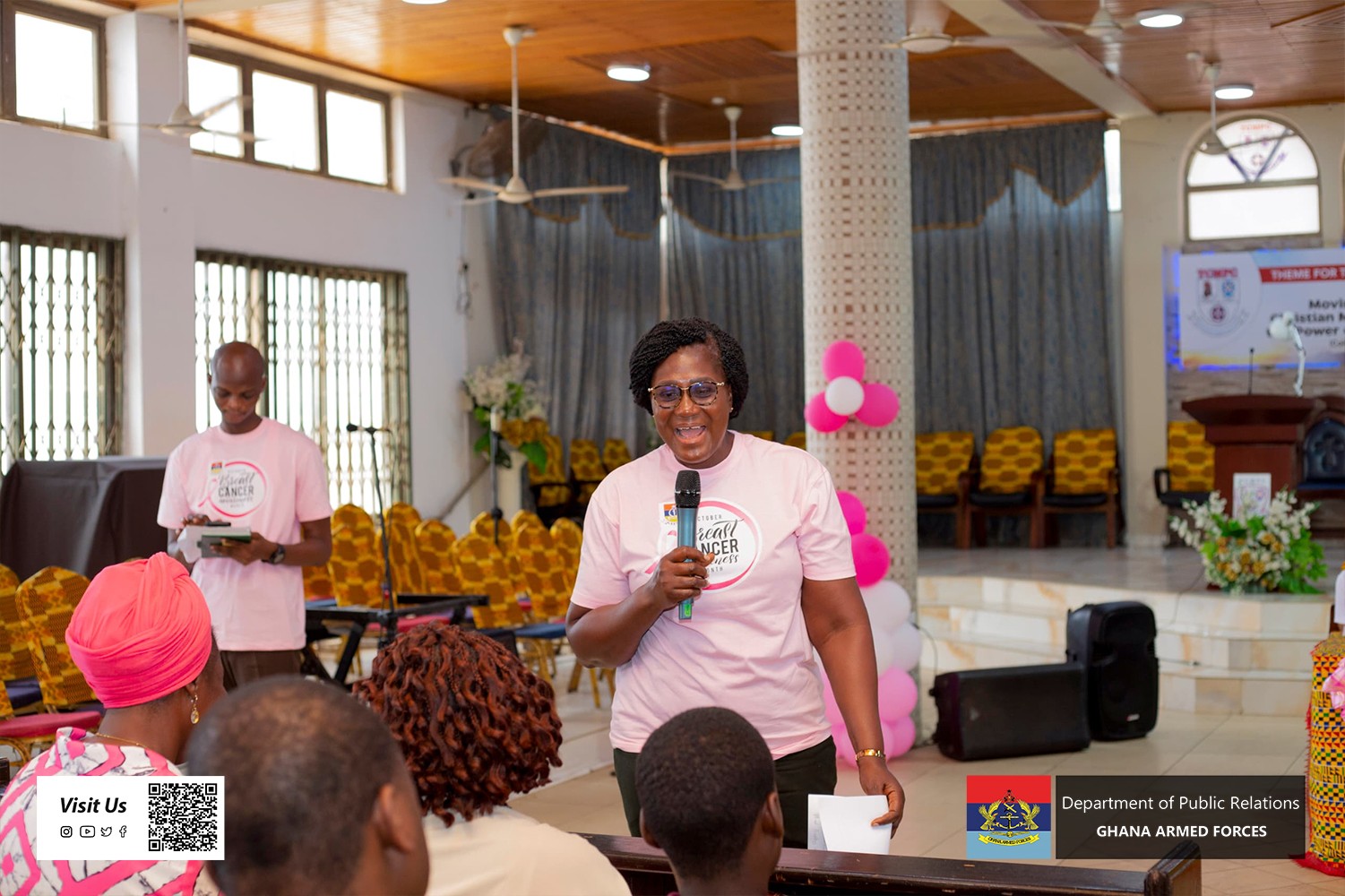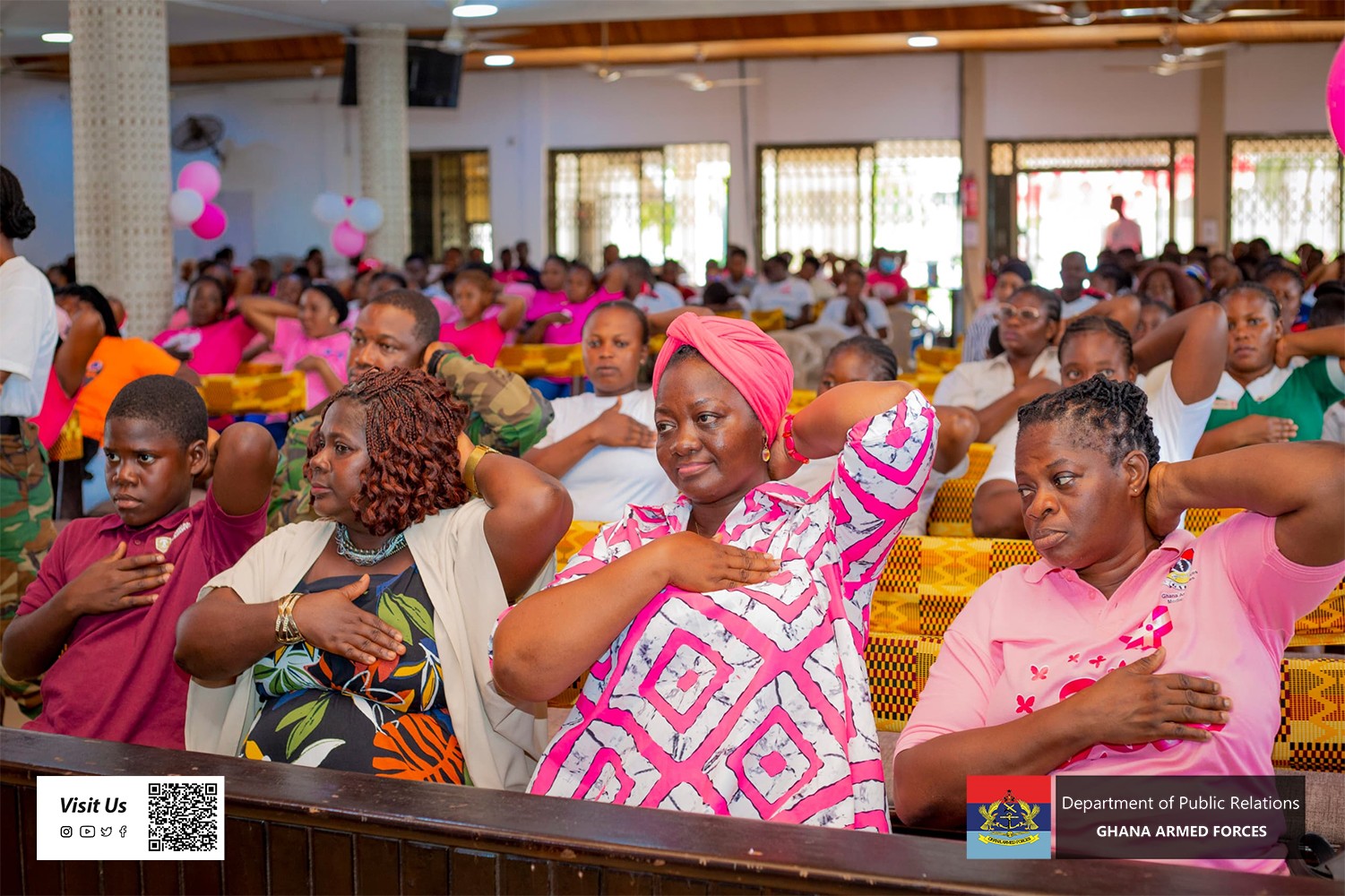The Kpeshie Medical Center (KMC), in collaboration with Headquarters Southern Command (Hq S/Comd), has held a breast cancer awareness campaign at Kpeshie Ridge and Wajir Barracks in Teshie on Friday 25 October 2024.
The event formed part of efforts by the Ghana Armed Forces Medical Services (GAFMS) to raise awareness and advocate against breast cancer among soldiers and their families in the barracks, emphasising the need for early detection, prevention, and management of the disease.
The campaign commenced with a route march of military personnel and their families carrying placards and banners with breast cancer awareness messages from the Oppong-Peprah Square through the Whistler Barracks to Wajir Barracks, all in Teshie Camp, accompanied by brass band music.

The Head of Pharmaceutical Services and Oncology at the International Maritime Hospital (IMAH), Dr Marc Kwame Dzradosi (PharmD), who was the guest speaker at the event, stated that although breast cancer predominantly affects women, men are also susceptible. He highlighted the need for a united effort to combat the disease.

Dr Dzradosi lamented the widespread stigma against those living with breast cancer, stating, “The desire to eliminate breast cancer has become secondary to the stigma that has emerged in our society, as if breast cancer is infectious.” He stressed that this stigma negatively impacts the psychological and social well-being of patients and urged the public to dispel the myths surrounding the disease.
He reiterated that breast cancer is real and manifests through symptoms such as skin dimpling, discolouration around the breast, bloody discharge, lumps, and breast pain. However, with early diagnosis, the disease is entirely treatable through surgery, medication, chemotherapy, and healthy dieting.

The Nursing Officer in Charge (NOIC) of the Medical Pool for 5 Garrison, Col Patience Awumee, mentioned that GAFMS conducts an annual breast cancer awareness campaign every October, as part of the global breast cancer awareness month. The campaign seeks to promote screening and provide advocacy for disease management.
She noted that the effects of westernization, artificial sweeteners in food, and lifestyle changes among Ghanaians have contributed to the rising prevalence of breast cancer. She, therefore, advocated for regular self-examinations and periodic screenings to detect and manage the condition early. 
























